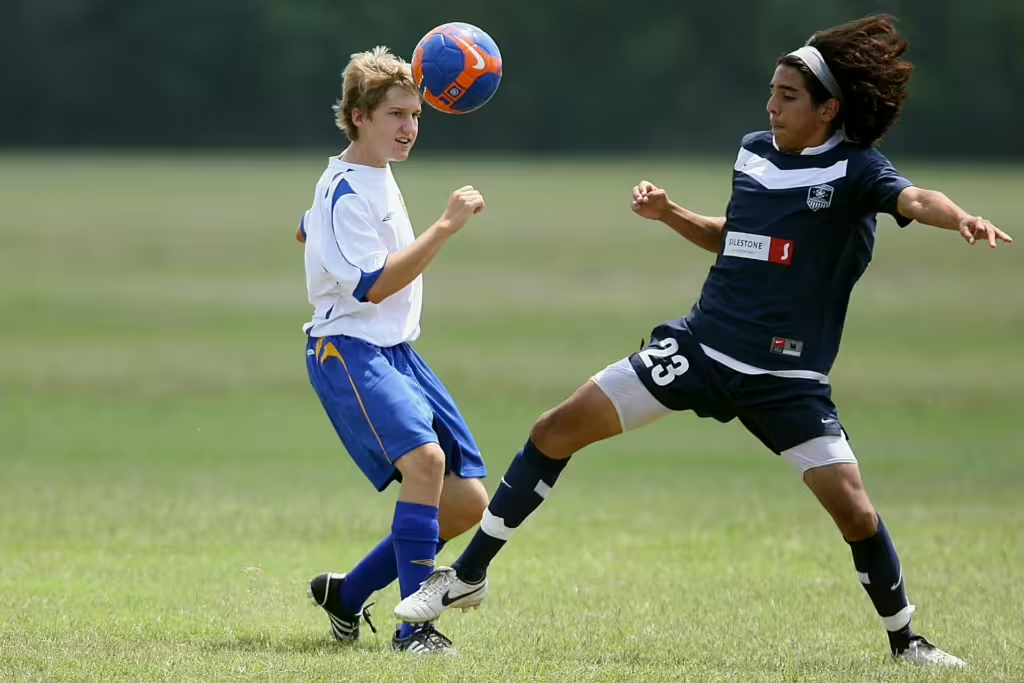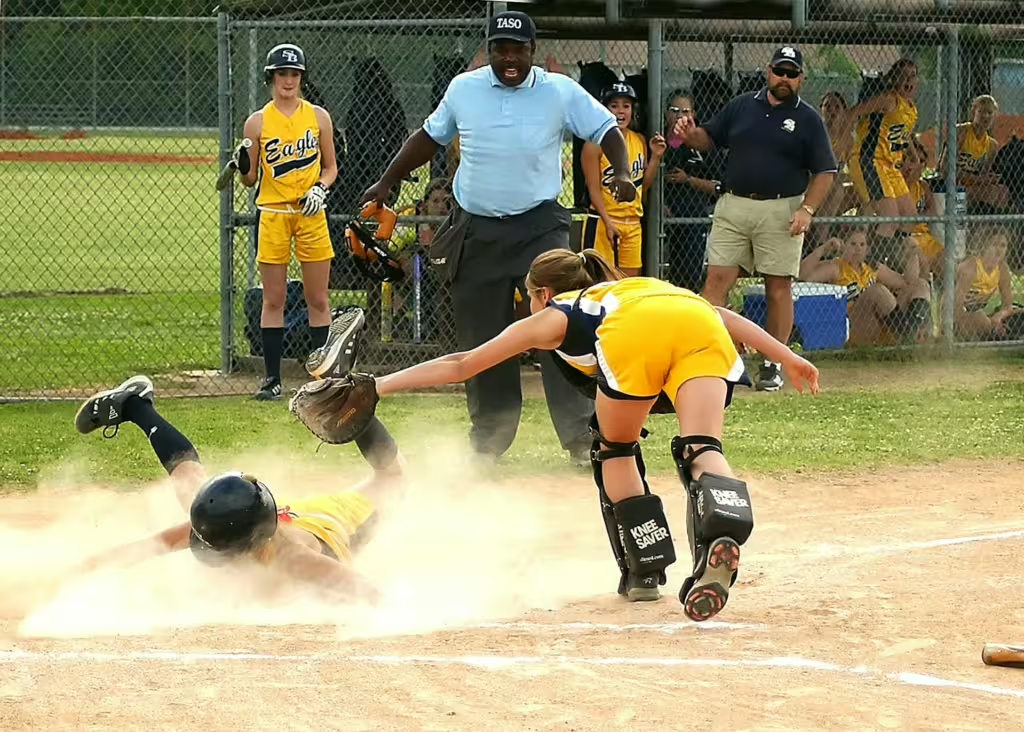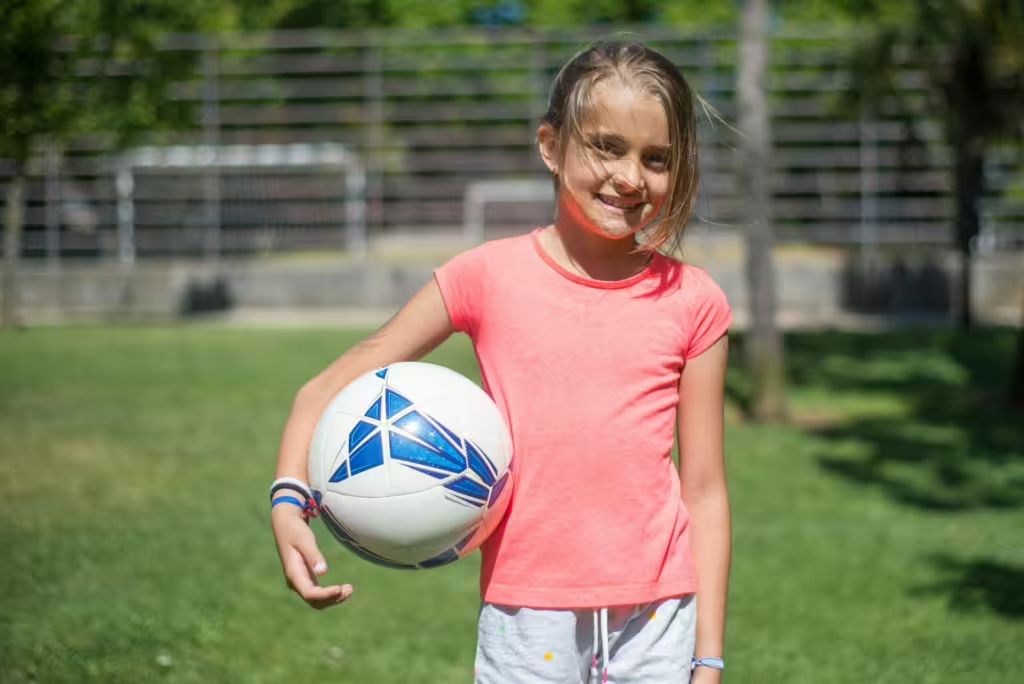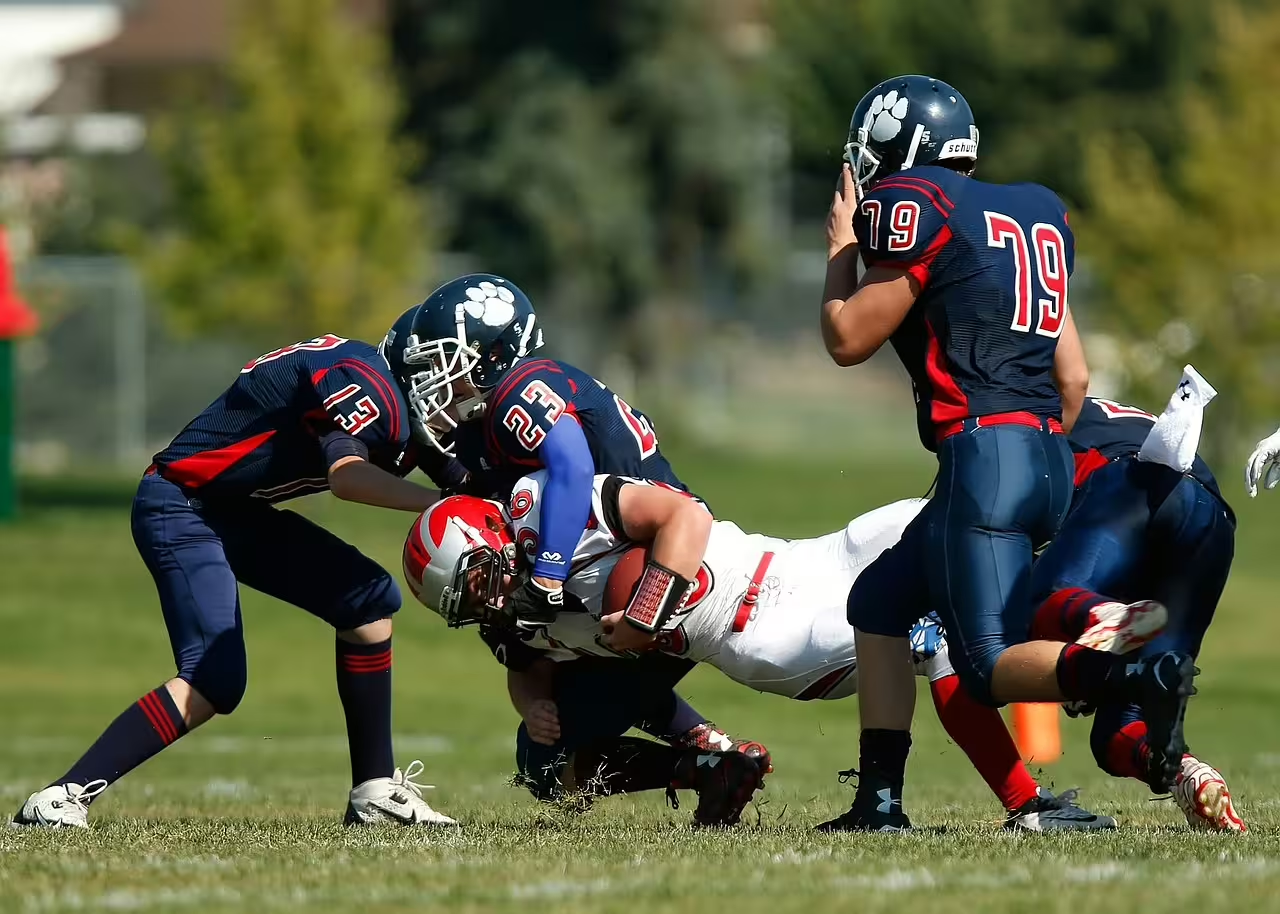We know that youth sports are a wonderful way for children to stay active, make friends, and build confidence. At the same time, playing sports in childhood can teach children lifelong values like teamwork and perseverance. When one takes all of these benefits into account, it comes as no surprise then that some parents might get a bit overzealous about their child’s budding “sports career.”
And listen, it’s only natural to want to be involved in your child’s journey — to cheer from the sidelines, to offer advice, and to want the very best for them. The problem is, oftentimes, without realizing it, our good intentions can come across as unnecessary pressure, criticism, or control. The question then becomes, how does one walk the fine line between being a child’s biggest fan or their most ardent coach. Moreover, how do we help them while still allowing them to grow independently through sports?
In this article, we aim to give parents some answers to these difficult questions. We will explore how parents can provide the right kind of support and how to avoid putting too much pressure on a young athlete. In the end, we will endeavor to provide appropriate tips on how to motivate a child, encourage their independence, and help to nurture their love of the game.
The Parental Role in a Child’s Sports Experience
You’re the Parent, Not the Coach
It is only natural to want to help guide our children in the same ways that we always have. In their everyday lives and from a very young age, it has been our job to teach them how to do just about everything. Indeed, by the time they are getting involved in youth sports, most parents have already shown them the basics and have played with them, even begun to tutor them in higher levels of play.
Once that child gets onto a team or joins a league, however, the parental role has to be scaled back some. That is why we advise parents to pull back on their involvement at this stage. Unless you are an actual coach, an assistant, or have some official involvement with the team, you are going to need to butt out! Remember, the parental role at this stage isn’t to critique their form, manage playtime, or devise game strategies, it has been shifted towards being an emotional support system — someone who:
- Listens to their child after practices and games.
- Encourages effort over outcomes in all aspects of sport.
- Helps manage logistics and emotions whenever possible.
- Respects the coach’s role and authority…even if they don’t agree with it.
Parents don’t always realize it, but when they try to coach from the sidelines, give constant instructions, or “correct” them after a game, the results can be more confusing than helpful. Not only does your child get confused, so do the other kids. This type of behavior can also undermine the coach’s authority, increasing stress and tension all around.
Tip: Before offering any feedback at all, stop and think. Maybe ask, “Do you want advice, or do you just want to talk about it?”
Focus on the Journey, Not the Destination

As with most youth sports, the true purpose of your child’s involvement is to create lifelong healthy habits, help them develop valuable life skills, and to have fun. Some of us may be laboring under the misconception that youth sports are there to turn our children into the next generation’s pro athletes, but this is absolutely off the point. Childhood sports experiences are there to help kids develop physically, socially, and emotionally. Winning is great, but it cannot be everything and it certainly shouldn’t be a parent’s main focus. Remember, children who feel pressured to win at all costs often burn out or lose their love for the game.
Tip: Parents would do well to measure success by the effort, attitude, and growth their children make whilst playing — not their top scores, golden trophies, or seasonal rankings.
Some Signs You Might Be Over-Involved
Look, we get it, there are very few parents out there that actual set out to be overbearing. When it does occur, this overzealous approach usually comes from a place of love or excitement. That said, if you notice any of the following signs or that you may be evincing some of the behaviors listed below, it might be time to take a step back:
- If you talk more about their sport than they do.
- If you find that you get more upset than they do after a loss.
- If you find yourself arguing with coaches, other parents, or league officials.
- If your child seems anxious before games.
- Finally, if your kid stops enjoying the sport or mentions quitting…it might be time to re-evaluate your own behavior.
Kids Know When the Pressure Is On
Kids are far smarter than we assume; we say this all the time. Time and again it gets proven to be true, even when it comes to our own kids. So, when we say that they will sense when the pressure is on, we mean it. Even subtle comments like “You’ve got to make that shot next time” or “You didn’t hustle hard enough” can feel like hurtful criticism to a child, even if you didn’t exactly mean it that way. Over time, too many of these comments can have your child start playing for approval rather than joy — and that can drain their love for the game, not to mention put unnecessary pressure on your own relationship with them.
Tip: Remember that encouragement motivates, while pressure only suffocates.
How to Be a Supportive (But Not Overbearing) Sports Parent
Here is the part you’ve all been waiting for; the part with the answers! If you’re ready to strike the right balance, then the following strategies can help you stay involved while still giving your child room to grow.
Be Present Without Hovering
Kids notice your presence, and trust us when we say, that they are glad you’re there with them. Being present means a lot to a child — but they also need space to build confidence on their own.
- Parents should make time to to games and practices when they can, but let their child own their experience as much as possible.
- Do your best to avoid standing right next to the coach or giving instructions from the sidelines; you may think you’re providing valuable input…trust us, you’re not. You’re getting in the way.
- Show interest in your child’s story without controlling the narrative.
Tip: A good question to ask them is “What was your favorite moment from today?”
Focus on Effort, Not Outcome
Praise hard work, improvement, and resilience over the winning and scoring aspects of the sport. Some good statements to incorporate into your parental sports vernacular can be found below:
- “You gave it your all — that’s what matters!”
- “I noticed you kept going even when it got tough. That’s amazing.”
- “You were such a good teammate today.”
These types of statements will teach your children that their value isn’t tied to their performance — and can help build long-term motivation.
Let the Coach Do the Coaching
Even if you have a sports background, you played when you were a kid, coach on your other kid’s team, or just love sports, in general, remember that you’re not the only “expert” around. It’s important to let the coach handle the training and strategy.
- Parents should always avoid contradicting the coach’s advice.
- Do your best to encourage your child to talk directly with the coach if they have questions or concerns.
- Resist the urge to correct every mistake your child made after practice has ended. Also, try not to mention mistakes you saw from other kids and/or the coaching staff or officials.
If you can follow these simple directives with regards to coaching, your kid will learn valuable communication and problem-solving skills by navigating their own challenges independently.
What to Say (and Not Say) Before, During, and After Games

Before the Game: Keep It Light
Avoid last-minute advice or pressure on your kid before play starts. Instead, say:
- “Have fun out there!”
- “I’m proud of you no matter what.”
- “I love watching you play.”
These simple affirmations will do much to a positive tone and reduce anxiety.
During the Game: Stay Calm and Supportive
- Cheer for effort and teamwork — not just for whatever goals they make or points they score.
- Avoid yelling instructions or criticizing mistakes…we shouldn’t have to say this, but some parents might need reminders.
- Focus on being a positive presence in the stands, not an intrusive, insistent voice.
If you find yourself feeling overly emotional, take a lap! Try some deep breathing or take a short walk during halftime to chill out.
After the Game: Let Them Lead the Conversation
Right after a game, emotions may still be high, therefore, parents should resist the urge to critique or rehash every play. Instead:
- Ask, “Did you have fun?”
- “What do you think went well?”
- “Anything you want to do differently next time?”
Let your kid process the experience at their own pace and in their own way.
Nurturing Independence in Sports
One of the greatest gifts youth sports can offer a child is the opportunity to learn responsibility, resilience, and self-direction. Here’s how you as a parent can encourage that sense of independence:
Let Them Pack Their Own Bag
Starting at a young age, kids can learn to take responsibility for their gear, water, and uniforms. This might sound simple and unnecessary, but trust us, it teaches preparation and accountability.
Tip: Create a checklist together, then hand it over to them to fill it out.
Encourage Communication with Coaches
If your child is confused about their role, frustrated with playing time, or has questions about improvement — encourage them to talk directly with the coach. You don’t need to get involved at every turn. In fact, in these situations it’s better if they learn to handle it themselves. You can still guide them though and help them go through what they want to say. This will help them build confidence, maturity, and self-advocacy.
Final Thoughts — Let Them Own Their Story
In the end, your child’s sports journey is their own story to write. Like it or not, we parents are not the authors — we are the supportive editors sitting in the background, offering encouragement, cheering them on, and helping them stay true to their own distinct “style.”
In sports and in life, there will be victories and there will be losses. There will be moments of frustration, and moments of joy. What matters most is that your kid feels supported, understood, and free to love the game for their own reasons; not because we want them to. Remember, when kids feel safe, valued, and encouraged — without pressure — that’s when they truly shine.
Quick Checklist: Are You Supporting or Overstepping?
If you are still unsure about your role and your behavior as a parent, ask yourself these questions to check your approach:
✅ Do I let my child talk first about their game experience?
✅ Do I praise effort more than outcomes?
✅ Do I allow my child to make mistakes without overreacting?
✅ Do I support the coach’s leadership role?
✅ Do I prioritize my child’s enjoyment and growth over my own expectations?
If you answered “yes” to most, then you’re probably good. This means that you’re striking a healthy balance. If not — don’t panic! Parents though we may be, we are still learning too. Even the most experienced parents need to evolve and learn new norms at different times in their lives. Remember that every person in this world is always learning, and it’s never too late to adjust your thinking or your approach.
Cultured Athlete Says…
As you can see, the answers are simple. If you, as a parent, show up with support, empathy, and love — without hovering or controlling — your child’s sports experience is bound to be an enjoyable one; dare we say, a successful one, even! Kids thrive in youth sports when they are able to gain confidence, build friendships, and grow into strong, resilient individuals, without the added pressure of wanting to be “the best.”
If you’re a parent who is looking to improve your behavior and help your child out, take it from us, there are three main things you can do: Show up. Cheer loud. Listen closely. Celebrate every step of your child’s journey with them. Most importantly of all — trust your child to find their way, they’ll get there, and if they stumble, you’ll be there to help them up.
Discover more from CulturedAthlete
Subscribe to get the latest posts sent to your email.






